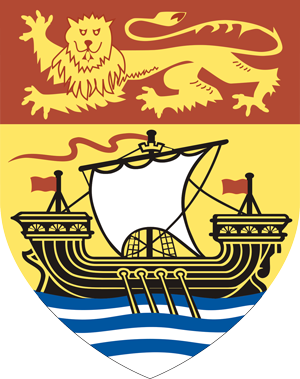More than $30 million was reported to New Brunswick’s Unclaimed Property Program during its inaugural year – money just waiting to be claimed by New Brunswickers.
New Brunswickers can now search for free on FundsFinderNB.ca to see if they have any unclaimed property. Simply enter a name in the search bar and the database will generate a list of any matching unclaimed property reported to the program, which is administered by the Financial and Consumer Services Commission (FCNB).
“It was pretty simple, really,” said Nathan Boudreau, a New Brunswicker who was successfully reunited with his unclaimed property. “Mine was a damage deposit that I forgot to collect when I left a previous apartment. I submitted my claim on FundsFinderNB, then I got an email asking to confirm some details. A few weeks later my cheque was in the mail.”
Among the most common types of property are insurance-related products such as proceeds due to beneficiaries, premium refunds and claim payments, mutual fund shares, credit balances and money in credit union accounts.
To date, there are thousands of individuals and businesses with unclaimed property that has been reported to the program.
“Considering this is the province’s first reporting period, we’re encouraged by the numbers, but we know there is more unclaimed property to be reported,” said Marissa Sollows, Director of Communications and Public Affairs at FCNB. “As businesses and other entities in the province work to meet their new obligations under the Act, we’ve created a website that provides details about their obligations and how to carry them out.”
Under the Unclaimed Property Act, which was proclaimed on January 1, 2022, all businesses and other entities must review their books every year for unclaimed property and attempt to locate the owners.
Money and monetary property are generally considered to be unclaimed when there has been no activity on them for at least three years, or 10 years for credit union accounts.
“Money can become unclaimed if, for example, someone left a job and never returned to receive their last paycheque or they opened and deposited money in a credit union account and forgot about it,” Sollows said. “Or a business is unable to return an overpayment because the person owed the money has since moved.”
If the businesses are unsuccessful in connecting the unclaimed property with its rightful owner, they are required to report and deliver the unclaimed property to the program every year during its reporting period: January 1 to March 31.
The program maintains a database of unclaimed property at FundsFinderNB.ca for New Brunswickers to search. This database is continually updated as new property is reported.
“We want to encourage the habit of checking the database regularly,” said Sollows. “Businesses and other entities are required to report annually, so every year more names will be added to the register. If you checked once and didn’t find anything, it doesn’t mean there won’t be something there for you later.”
To raise awareness about the program, FCNB will be launching a campaign encouraging New Brunswickers to check FundsFinderNB.ca. Traditional and digital advertisements will run across the province in October and will repeat annually as a reminder that new pieces of unclaimed property are added every year.
Businesses and other entities holding unclaimed property that want to know more about their reporting requirements can find helpful information and resources at FundsFinderNB.ca, and are encouraged to consult their legal and accounting professionals for guidance.
FCNB has the mandate to provide regulatory services that protect the public interest, enhance public confidence and promote understanding of the regulated sectors through educational programs. It is responsible for the administration and enforcement of provincial legislation regulating mortgage brokers, payday lenders, real estate, securities, insurance, pensions, credit unions, trust and loan companies, cooperatives, and a wide range of other consumer legislation. It is an independent Crown corporation funded by the regulatory fees and assessments paid by the regulated sectors. Online educational tools and resources are available at www.fcnb.ca.

